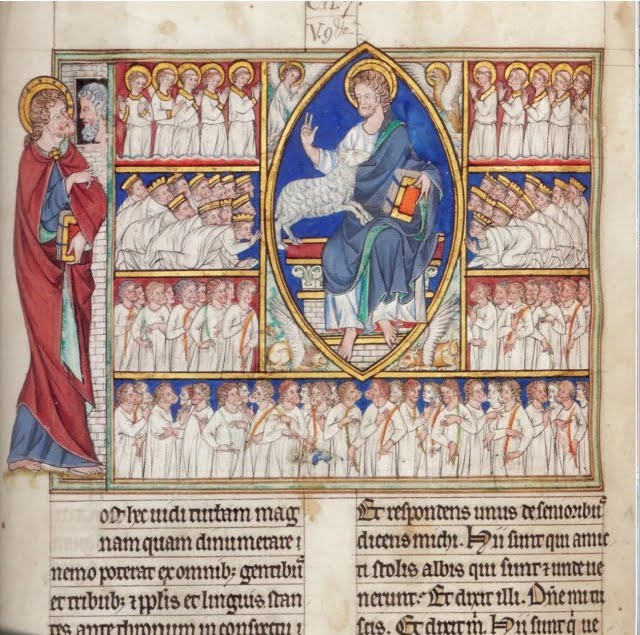Chapter Talk – Fourth Sunday of Easter – April 30th, 2023, cycle-A
“…They hear his voice”; “…They recognize his voice”…and they follow. For the Fourth Sunday of Easter the gospel reading is from St. John’s gospel on the theme of the ‘Good Shepherd’ (Jn 10:1-10). In the selection for this Sunday there is emphasis on hearing two different voices: one is the voice of the ‘shepherd’, the one who leads to life, and the other is another voice, which is a tempting voice, a voice ruled by the ego’s agenda, not the agenda of God. How do we differentiate which voice we are to follow? Do we even recognize or are we aware when we follow a voice that is not from the Divine prompting? The metaphor of shepherd and sheep in this gospel tells us exactly what ‘sheep’ do: instinctively they know, they recognize the voice of their shepherd who guards, protects, leads to green pastures, leads to life. We are not sheep, still there is an inner ‘knowing’ of the voice of wisdom, integrity, compassion, truth, the voice of God’s Son that we are to listen to.
Silence helps us to hear, to hear and sort through these different voices. Prayer, lectio on the Word of God, all nurture and help us to recognize the voice of the ‘Good Shepherd’, the One who has breathed his Spirit into our being. Let us be aware that there is the voice of God, the silent voice of the Spirit and then there is this other voice, that speaks in a variety of guises. Pope Francis has an excellent reflection on hearing and differentiating these voices. He says: “The voice of God never forces us: God proposes himself; He does not impose himself. Instead, the evil voice seduces, assails, forces: it arouses dazzling illusions, emotions that are tempting but transient. At first it flatters, it makes us believe that we are all-powerful, but then it leaves us empty inside and accuses us: ‘You are worth nothing”. The voice of God, instead, corrects us, with great patience, but always encourages us, consoles us: it always nourishes hope. God’s voice is a voice that has a horizon, whereas the voice of the evil one leads you to a wall, it backs you into a corner” (Angelus, May 3, 2020). What I find moving in what the Pope says is that the voice of God leaves us with a ‘horizon’. This means a large view of life, of Divine life, we indeed begin to see as God sees. There is space, there is hope, love is palatable, there is a sense of communion both near and far. The voice of God breaks down the walls that these other voices try to build in the interior depths of our heart.
The Pope says that this other voice “distracts us from the present and wants us to focus on fears of the future or sadness about the past — the enemy does not want the present — it brings to surface the bitterness, the memories of the wrongs suffered, of those who have hurt us, … many bad memories. On the other hand, the voice of God speaks in the present: ‘Now you can do good, now you can exercise the creativity of love, now you can forego the regrets and remorse that hold your heart captive’. It inspires us, it leads us ahead, but it speaks in the present: now.” Sisters, we build the future by living fully in the present. By living in the present, we naturally lean into the future. We may ponder this: is my life, are our lives lived together building walls or are we living out of the horizon that Jesus taught and lived so completely? Listening, recognizing his voice, often his silent voice, to lead and guide us daily: this is what builds a community of faith, a community that is a witness to the Divine Love that alone can transform the powers of darkness and evil.
And these final words from Pope Francis: “God’s voice and that of the tempter, speak in different “environments”: the enemy prefers darkness, falsehood, and gossip; the Lord loves sunlight, truth, and sincere transparency. The enemy will say to us: ‘Close yourself up in yourself, besides no one understands and listens to you, do not be trusting! Goodness, on the contrary, invites us to open up, to be clear and trusting in God and in others. Dear brothers and sisters, during this time many thoughts and worries lead us to turn inwards into ourselves. Let us pay attention to the voices that reach our hearts. Let us ask ourselves where they come from. Let us ask for the grace to recognize and follow the voice of the Good Shepherd, who brings us out of the enclosures of selfishness and leads us to the pastures of true freedom”. The Pope leaves us with this task: pay attention to the voices inundating our hearts; then, ponder where do they come from; finally asking the grace to hear and follow the voice of truth, inclusive love, compassion, God’s beloved Son.
Sr. Kathy DeVico, Abbess


